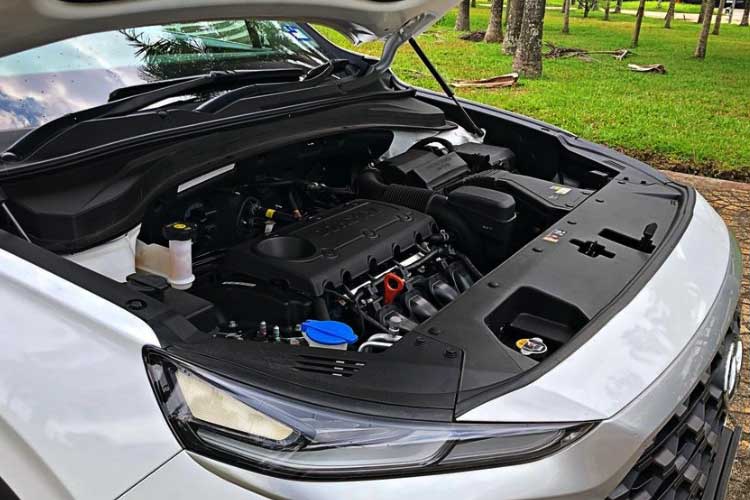A common problem with cars is overheating. Mainly it is seen after a long period of driving. But what if it overheats after 20-30 minutes of driving? It is a sign that there is a problem with the car’s cooling system.
So why is the car overheating after 20-30 minutes? That is because the thermostat or water pump or cooling fan is not working. Or the low coolant level and mixing of coolant with engine oil due to gasket leakage can cause overheating of the engine.
That’s not the end. Radiator-related problems or chemical reactions also cause the engine to heat quickly. We have discussed these problems with solutions in this article.
8 Causes of Car Overheating After 20-30 Minutes
Car overheating within a short period can be caused for some serious reasons. Like there can be problems with the thermostat or coolant problems. Most of the time, these two are the main cause. Also, the car engine can overheat while the AC is off. These are the common causes of quick overheating issues.
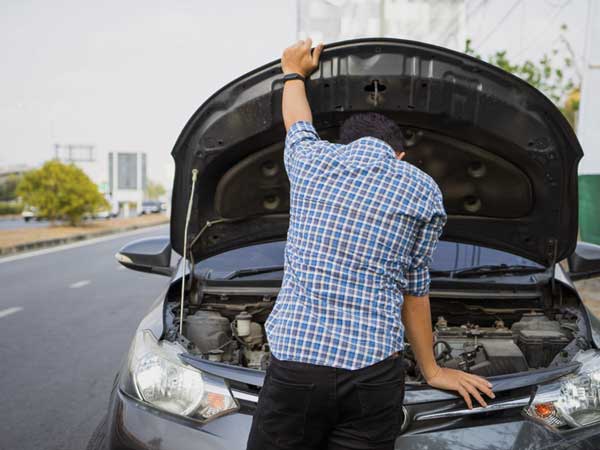
Cause 1: Due to the Thermostat
The engine thermostat helps to balance the temperature of the engine by coolant flow. While the temperature rises, the thermostat permits the coolant to flow. But while the temperature is cool, it stops the flow.
However, coolant will flow during the cool temperature if the thermostat goes bad. In this case, there will be a mess and the engine will heat within a short period.
Another possible thing can happen. Coolant will not pass during heated conditions for the bad thermostat. The radiator will not get a chance to receive the coolant, which increases the temperature of the engine.
Solution
If the problem is occurring with the engine thermostat, you must change it. Usually, the thermostat does not easily get damaged, but it can get bad earlier for its defective part. You can take help from a professional, also by yourself.
Example: “Video”
Cause 2: Due to Coolant
The engine can overheat within 20-30 minutes due to bad coolant or a low level of coolant as well. Milky or dark coolant or changing texture is a sign that the coolant is bad or mixed.
Accordingly, the coolant can get worse due to the admixture of the bad coolant with a new one. Or it occurs when you are not changing the coolant for a long time.
Another cause is insufficient coolant. If the level is low, the engine system will not get enough coolant and for this, the temperature will easily rise.
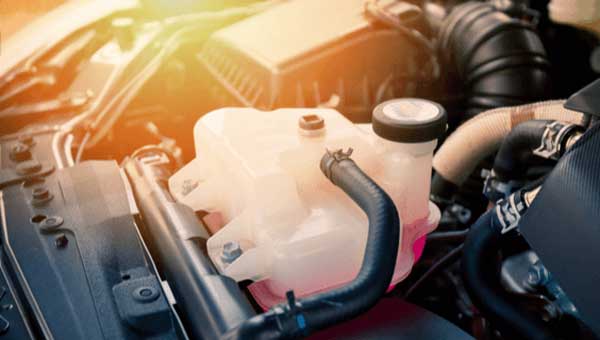
Solution
You should check the coolant level regularly. Also, you should drain the old coolant before filling it with a new one. Changing coolant timely is a healthy step for your car. Mixing water with coolant while changing is a mandatory work.
Cause 3: Radiator-Related Problem
The thermostat flows more coolant to the radiator to mix with the heated one. That can help to balance the temperature. If the radiator gets bad, the coolant will leak. That can cause an imbalance of the temperature and cause engine overheating.
Likewise, the radiator can be filled up with dirt and block the way. That will hamper coolant flow and can add air with coolant. As a result, your engine will heat due to insufficient coolant and the presence of air.
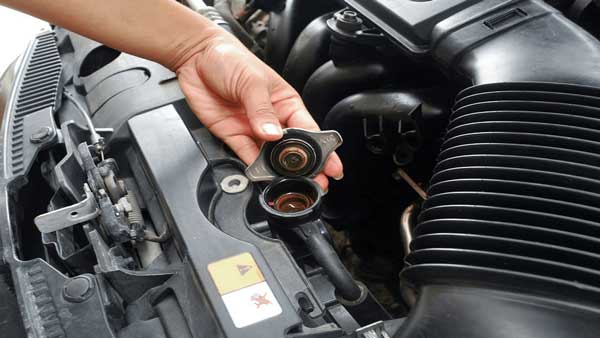
Solution
Regular cleaning of the radiator is the best option to avoid leakage or blockage. A faculty radiator also can create problems. In that case, you have to replace the faulty radiator.
Cause 4: Leakage In Coolant System And Chemical Reaction
Another cause of overheating is leakage. There can be a leakage in the way where the coolant runs. If any leakage is present, the coolant will leak with combusted gas. This causes pressure change. Another problem of leakage is the air entering the system.
That can cause chemical reactions to the coolant and cause an imbalance in combustion. Improper combustion can create more gasses. That will go to circulation. As the gasses are also heated, they will increase the temperature of the engine.
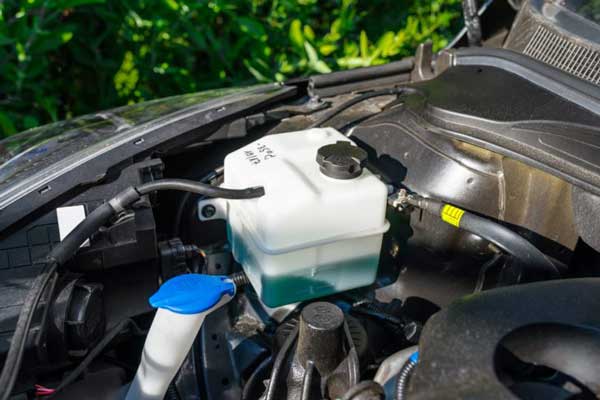
Solution
Find out the leakage by a pressure test. Repair the leakage as soon as possible.
Cause 5: Problem with Cooling Fan
The cooling fan helps to cool down the temperature. When the internal temperature rises or the coolant gets hot, it slowly cools down and resists overheating the engine. But if there is any damage in the cooling fan or the blades of the fan are not operating, the engine will be heated easily.
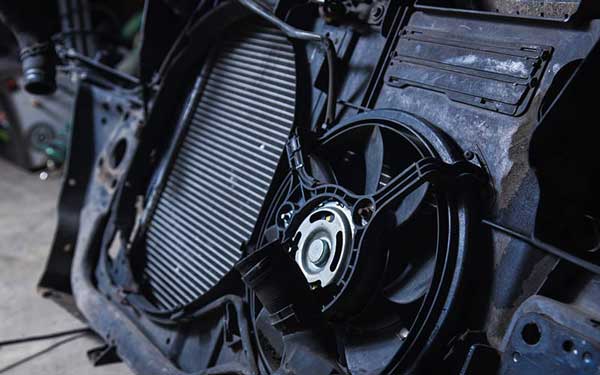
Solution
If any damage is found or noise is coming from the cooling fan, it should be replaced with a new one.
Cause 6: For Gasket
The head gasket helps to distinguish the engine oil and the coolant. Accordingly, the engine’s combustion process can not come in contact with the coolant system due to the gasket.
While there is an expanded cylinder head, the gasket will leak. That can cause a mixture of the coolant with the engine oil. The combustion gasses of engine oil will go to the coolant system and cause overheating.
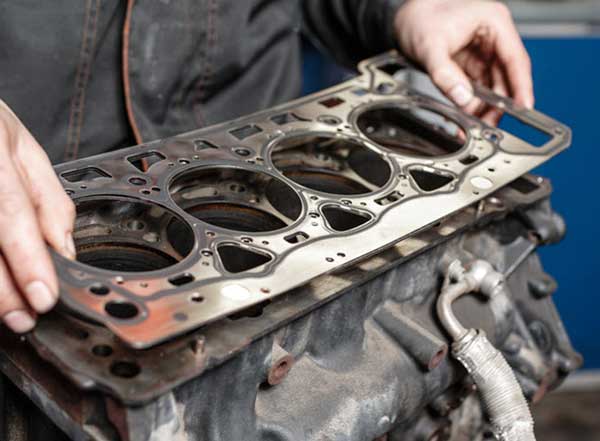
Solution
Replacing a gasket is not easy to do. You need help from a professional. You can seal the leakage of the gasket for repair.
Cause 7: Problem with Water Pump
A water pump or coolant pump helps to flow the coolant in the engine and reduce overheating problems. If the water pump is not working, the engine will quickly overheat. Also, it can cause leakage.
Likewise, if you find out that the upper and lower radiator hose has different temperatures or the upper hose is cooler, it is a sign that the water pump is not working.
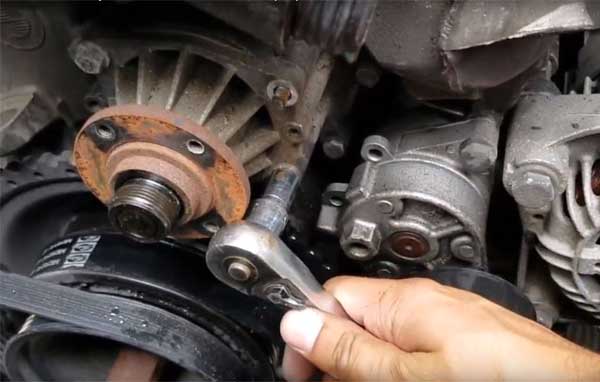
Solution
Replacing the faulty water pump is the only option to solve this problem.
Cause 8: For Avoiding Regular Maintenance
Regular maintenance of vehicles can save many unwanted occurrences. If regular maintenance is not done, the problems discussed above can happen at any time. Overheating in 20-30 minutes is common in cars that are not regularly cleaned and maintained.
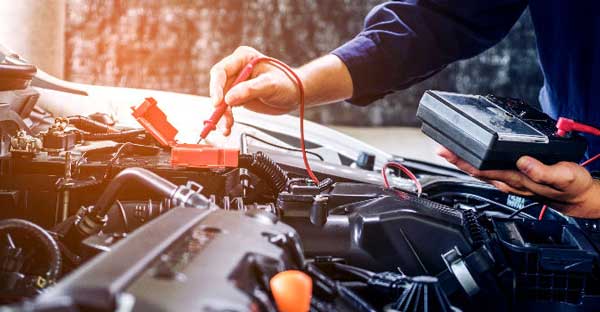
Solution
So, it is better to maintain it regularly for overheating causes and get rid of severe problems. But regular servicing costs little more than replacing any parts of the car. These are the problems that can happen. If the car is still overheating after solving these problems, you should take help from an expert.
If your car is overheating after running for 20-30 minutes, you may be interested in our articles on car overheating when the AC is on and idling and car overheating and leaking coolant. These articles provide valuable information and solutions to common car overheating issues, such as cooling system failures, radiator problems, thermostat issues, and AC compressor failures. Whether you’re dealing with overheating while idling with the AC on or experiencing coolant leaks, our team at Car Problem Solved can help you diagnose and repair the problem.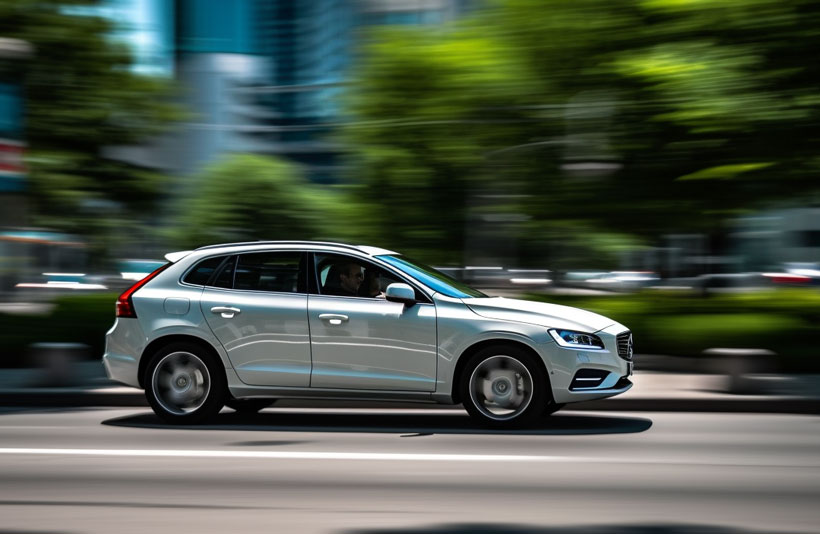
FAQs
Here are some common questions asked by people about engine overheating.
No. It is not okay to drive while the car is overheating. You should stop the car immediately when you understand that there is a heating issue. Driving it in this condition can damage the engine. Let it cool down and then drive.
No, overheating does not always damage the engine. If the engine is severely heated, that can damage it. Overheating is not a good thing for the engine. However, frequent overheating causes damage to the engine slowly.
Yes. The engine will be ok after overheating, but you should not neglect it. You should find out the cause as soon as possible and repair it. Otherwise, the engine will be damaged and that will be cost-effective.
Conclusion
That’s all about today’s topic about the car overheating after 20-30 minutes. It occurs in your car when you forget to take care of it regularly. If you are not maintaining it regularly, you will face this problem. A low coolant level or bad coolant can heat the engine easily.
Failure of the engine thermostat and radiator can also do this. Any leakage in the coolant system will hamper the system and cause overheating. If the coolant pump is not working, there will be leakage. To avoid the problem, you should check the parts timely. This will help to have a safe drive!
